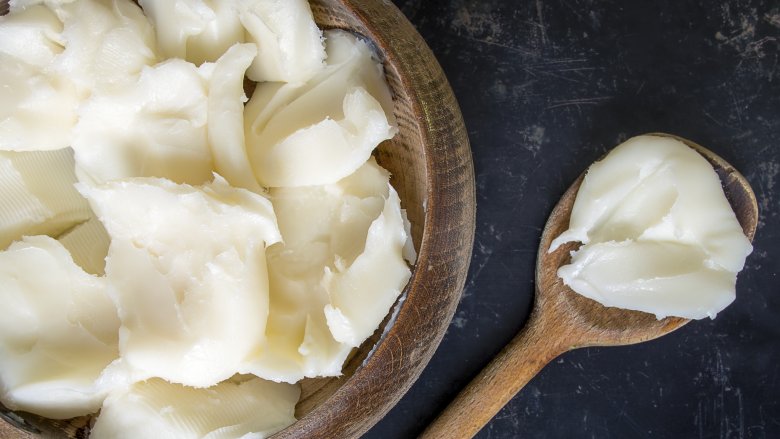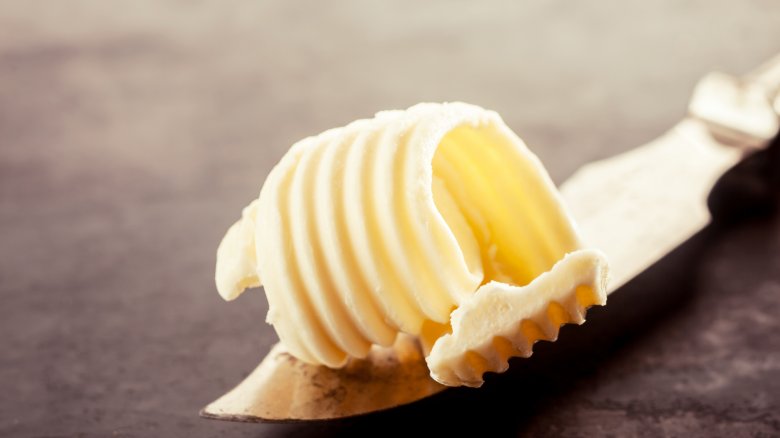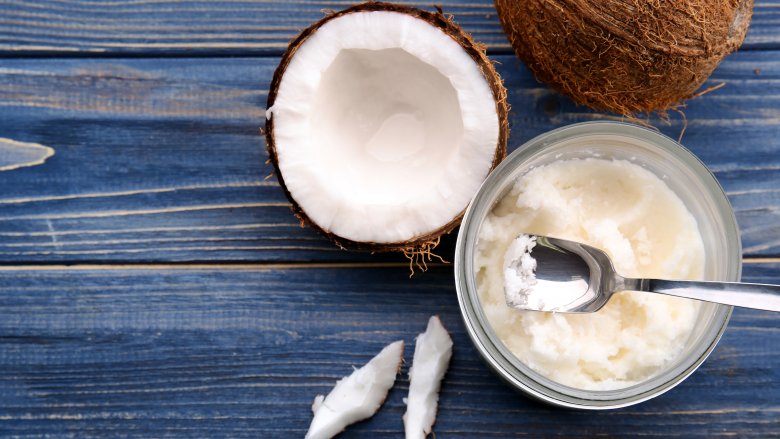Here's What You Can Substitute For Shortening
If you like baking cookies, cakes, scones, or biscuits, chances are you've come across recipes that call for shortening. But what simple substitution can you use for shortening when you start baking and suddenly realize your pantry is bereft of this classic cooking fat?
Shortening is a saturated fat that's solid at room temperature. This means we need to look for another fat that's solid at room temperature, and preferably one that has the same low-moisture content as shortening. Taking into consideration both texture and flavor, there are a couple of substitutes for shortening that will still churn out the delicious baked goods you were hoping for.
How to substitute butter for shortening
Most of us keep butter on hand, so if you run out of shortening, you can reach for this staple instead. In general, you can use butter instead of shortening at a 1:1 ratio, meaning if a recipe calls for 1 cup of shortening, you can replace it with 1 cup of butter (via Taste of Home).
Butter has more liquid in it than shortening, so you may want to slightly reduce the amount of liquid called for in the recipe (via Better Homes & Gardens). Butter also tends to result in baked goods that are a little more on the brown side than you might have expected, and if you use it instead of shortening to make a pie crust, the results won't be quite as flaky. On the upside, butter brings a richer flavor than shortening to cookies, cakes, and pie crusts.
How to substitute coconut oil for shortening
If you don't have butter, or if you don't eat dairy, you can try using coconut oil instead of shortening. Look for refined coconut oil if you want a neutral flavor; virgin has a strong coconut taste (via Nutiva).
Substitute coconut oil for shortening at a 1:1 ratio. One important thing to note is that coconut oil is solid if the temperature in the room is 76 degrees or colder; if your recipe calls for shortening and your coconut oil has melted, pop it in the fridge for 5 to 10 minutes before using it, until it reaches a shortening-like texture (via Food 52).
Coconut oil, like butter, also has a lower melting point than shortening, so if you're making cookies they might spread out a bit more than you're used to (via The Kitchn). You can remedy this by making sure to thoroughly chill your dough before you bake it.


